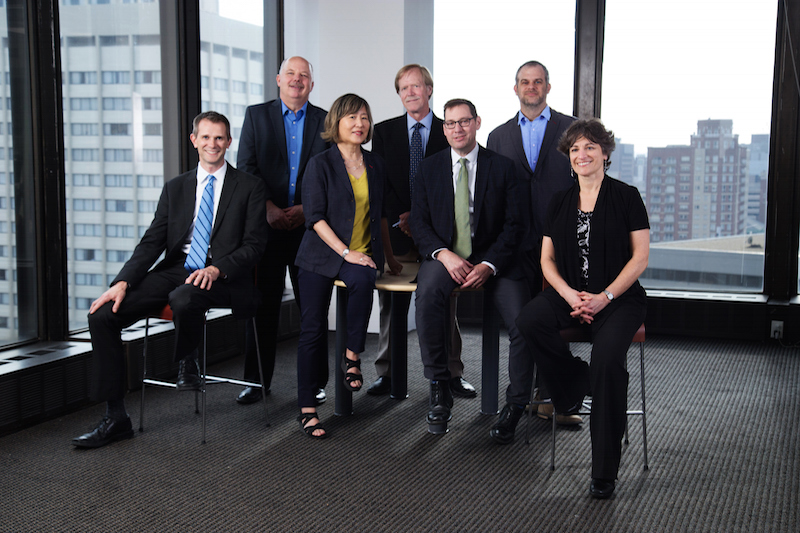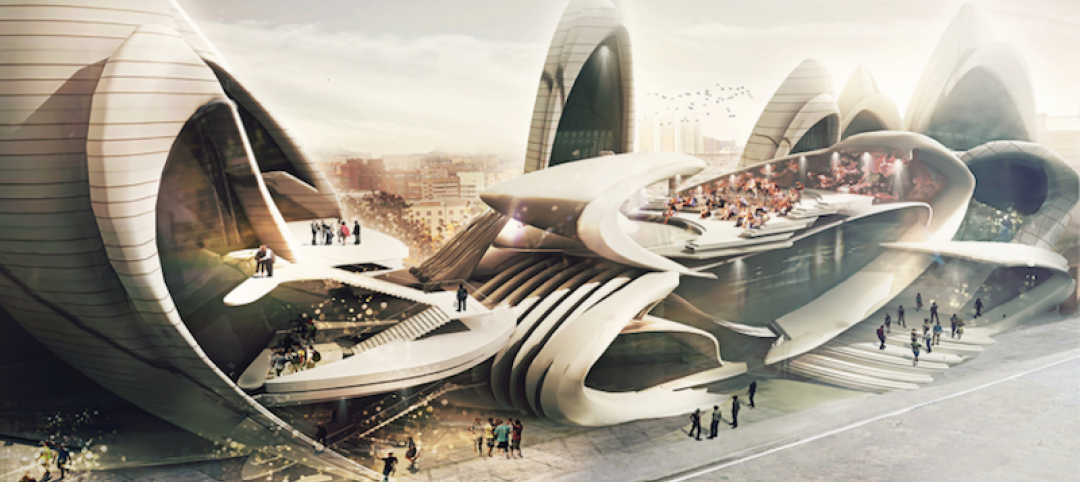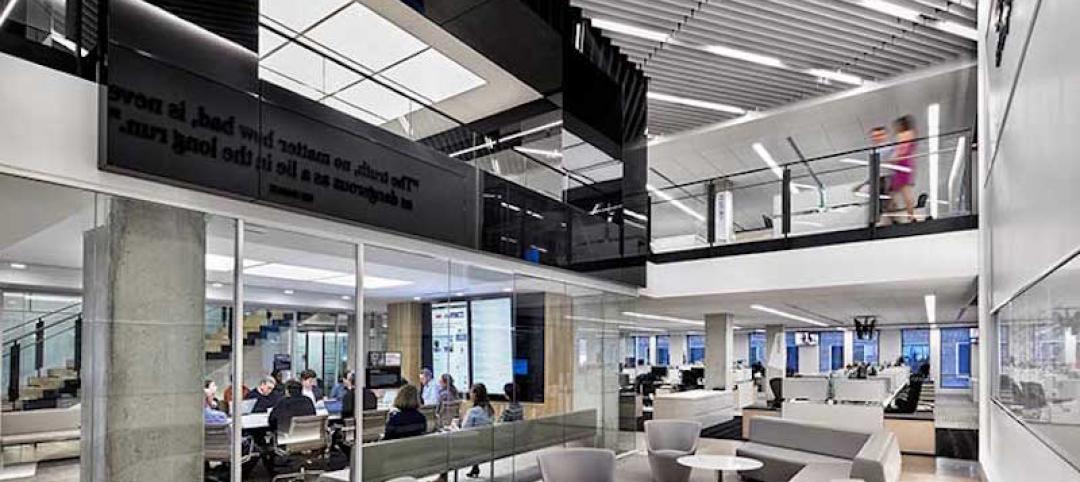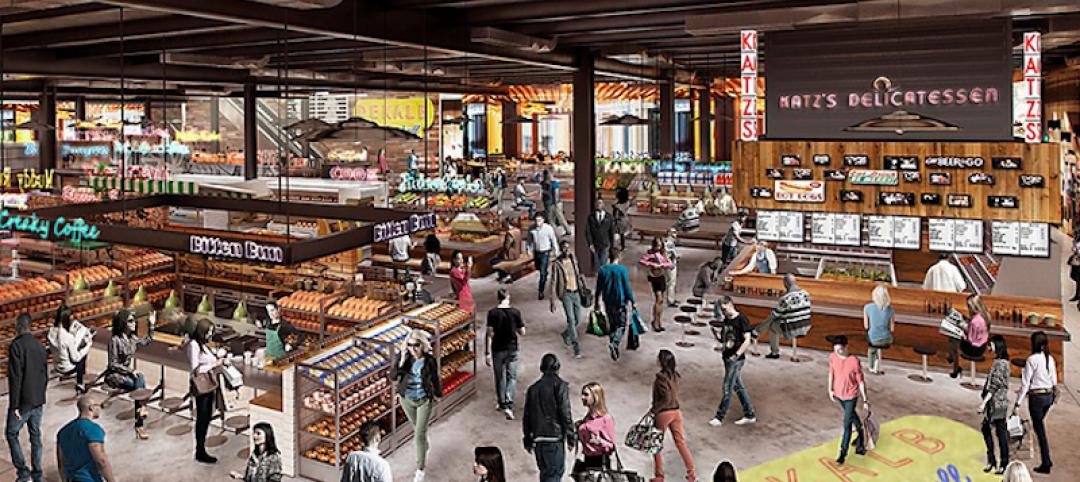The Washington, D.C. architectural and planning practice Quinn Evans Architects will expand to five office locations on May 1 when its acquisition of Baltimore-based Cho Benn Holback + Associates becomes effective.
Quinn Evans, founded in 1984, also operates from offices in Detroit and Ann Arbor, Mich.; and Madison, Wis. The new addition brings Quinn Evans’ employee count to more than 140.
The 30-person Cho Benn Holback, which was established in 1979, will remain at its current location, and operate under its name with the addition “a Quinn Evans Company.” No changes to its management or staffing are anticipated.
The two firms have portfolios in cultural, educational, civic, and urban infill projects, with an expertise in historic preservation and adaptive reuse. Cho Benn Holback + Associates has been recognized with more than 200 design awards, and is regarded for its design and revitalization work in Baltimore.
“Quinn Evans Architects is well known for its resourcefulness in urban planning and design, and that focus is what has inspired our own work through the years as well,” says Diane Cho, AIA, one of the firm’s founding partners. “We are looking to help rebuild and reinvigorate communities. Working together, we’ll have an opportunity to take our experience to other cities, and bring Quinn Evans’ perspective to our work here in Baltimore as well.”
Larry Barr, AIA, President of Quinn Evans Architects, views Cho Benn Holback + Associates as an ideal fit for Quinn Evans Architects in terms of staff, expertise, and portfolio. “I have long admired the thoughtful and creative approach reflected in their work—the caliber of design is consistently visionary and transformative. Projects like the Lillian Jones Apartments; the National Postal Museum; and Open Works, the state-of-the-art new maker space in Baltimore, are standouts.”
Both firms have completed a number of theater projects: Quinn Evans is currently designing the modernization of the 500-seat, 36-year-old Terrace Theatre at the John F. Kennedy Center for the Performing Arts in D.C., and Cho Benn Holback recently completed the $28 million renovation of Center Stage in Baltimore. (Whiting-Turner Construction was the GC on that project.)
Related Stories
Architects | Sep 26, 2016
Explore the world through architectural adventures
A new travel program offers design enthusiast travelers 10 global destinations.
Architects | Sep 21, 2016
DLR Group broadens its practice range and market penetration with addition of Westlake Reed Leskosky
The merger, say company officials, creates “a global design leader” in a consolidating industry.
Architects | Sep 21, 2016
Design for the transition from thinking to creating
While heads-down work continues, the changing nature of learning and work has resulted in a shift toward frequent and spontaneous exchanges.
Codes and Standards | Sep 21, 2016
Healthy buildings becoming a key design priority for both architects and building owners
Nationwide survey finds nearly three of four architects cite health impacts influencing design decisions
Cultural Facilities | Sep 19, 2016
International competition recognizes insect-inspired design for Moscow Circus School
The proposal would make the school’s activities more transparent to the public.
Architects | Sep 19, 2016
A workplace designed for the innovation economy
Over the past 100 years, how we work has changed dramatically, and these changes have impacted workplace design.
Architects | Sep 16, 2016
Former architect now builds architectural wonders out of LEGO blocks
Adam Reed Tucker’s creations are currently on display at the Museum of Science and Industry.
Architects | Sep 15, 2016
Implicit bias: How the unconscious mind drives business decisions
Companies are tapping into the latest research in psychology and sociology to advance their diversity and inclusion efforts when it comes to hiring, promoting, compensation, and high-performance teaming, writes BD+C's David Barista.
Museums | Sep 14, 2016
Architectural model museum opens in Japan
The museum includes models from Japanese architects including Shingeru Ban, Kengo Kuma, and Riken Yamamoto.
Designers | Sep 13, 2016
5 trends propelling a new era of food halls
Food halls have not only become an economical solution for restauranteurs and chefs experiencing skyrocketing retail prices and rents in large cities, but they also tap into our increased interest in gourmet locally sourced food, writes Gensler's Toshi Kasai.

















